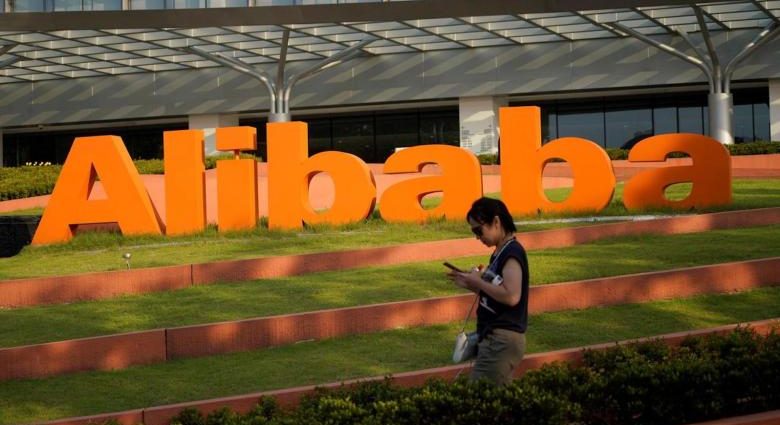Stock markets in Hong Kong and Shanghai fell sharply on Monday (October 24) as China’s new leadership was formed after the week-long 20th Communist Party National Congress closed on Saturday.
The Hang Seng Index fell 1,030 points, or 6.36%, to 15,180, the lowest level in 13 years. Technology and property stocks fell by more than 10% in the rout. The Shanghai Composite Index dropped 61 points, or a more moderate 2%, to 2,977.
The market tumble came after the Chinese currency weakened to 7.26 to the US dollar, the lowest level since 2008. Meanwhile, the National Bureau of Statistics said China’s gross domestic product (GDP) grew 3% in the first three quarters of this year, far below target of 5.5%.
Economists and analysts said Beijing’s tough diplomatic stance and “common prosperity” drive might have a negative impact on China’s economic trajectory over the long run.
The newly-formed 20th CPC Central Committee, which comprises 205 members, on Sunday chose the party’s leaders for the next five years. General Secretary Xi Jinping and standing politburo members Zhao Leji and Wang Huning renewed their terms. Shanghai party secretary Li Qiang is expected to tipped to become China’s next premier in March 2023.
Foreign Minister Wang Yi will lead the Office of Foreign Affairs of the CPC Central Committee, according to media reports. His position will be replaced by Qin Gang, the current Chinese ambassador to the US. The duo has defined and spread China’s more assertive “wolf warrior” diplomatic strategy in recent years.

Originally, the Chinese government planned to announce its external trade figures on October 14 and economic data on October 18. But the figures were only released today (October 24).
China’s GDP rose 3.9% year-on-year in the third quarter of this year, beating the market forecast of 3.3%, according to the National Bureau of Statistics (NBS). Urban unemployment rate rose by 0.2 percentage points to 5.5% in September from August.
China’s exports rose 5.7% to US$322.8 billion in September from a year ago, beating the market forecast of 4.1%, according to the General Administration of Customs. However, China’s imports only grew 0.3% year-on-year to $238 billion last month, missing the forecast of 1%.
Zhao Tonglu, director-general of the Department of National Accounts at NBS, said China’s manufacturing activities and domestic consumption contributed 1.4 and 2.1 percentage points to the GDP growth rate, respectively, in the third quarter.
Zhao said the country’s retail and wholesale, logistics and dining and hotel sectors returned to expansion, contributing 0.3 percentage points of the GDP growth rate.
However, property investments fell 8% in the first nine months of this year compared to last year, the official figures showed.
The NBS said the Chinese economy had significantly improved in the third quarter from the second quarter despite complicated and severe global and domestic situations. It said the improvement was mainly due to the central government’s supportive measures.
Still, on Monday, Chinese stocks were under huge downward pressure as investors were worried about the slowing economy and the emphasis give to the “common prosperity” drive at the congress, which some analysts see as a potential lurch away from private sector-led economic growth.
Tencent’s shares fell 11.43% to HK$206.2 (US$26.3), the lowest since January 2017. They have fallen about 70% from the peak of HK$681.5 in January 2021. Alibaba’s shares dropped 11.42% to HK$61.65, marking a new historical low. They have declined 79% from the peak of HK$298 in October 2020.
Meituan slumped 14.8% to HK$120.6 while JD.com fell 13.2% to HK$141.8. Shares of Longfor Properties plummeted 15% to HK$16.2 while China Overseas Land and Investment Ltd plummeted 10.4% to HK$2.13.
Harris Wan, vice president at iFAST Global Markets, said Hong Kong’s stock market crashed on Monday due to investors’ concerns about China’s politics, not economics. Wan said China’s third-quarter GDP growth was actually better than expected and showed signs of recovery.
Wan said some investors felt that the newly appointed Chinese leadership would be more hawkish than the outgoing one, meaning high geopolitical tensions between the US and China would likely ensure in the short run. He said stock markets may slightly rebound in a few days but he would not recommend buying more Chinese stocks at present.

Dickie Wong, executive director of research at Kingston Securities Ltd, said panic selling could be seen in Hong Kong on Monday as investors worried that the new Chinese leadership would take a tougher stance in foreign affairs and emphasize security over economic reform.
Wong noted that Chinese technology stocks dropped by more than 10% on Monday as Nasdaq had reportedly halted all IPO listings of small-cap Chinese firms, or the so-called “China Concept Stocks.”
He opined that the suspension was justified as the shares of many US-listed Chinese technology companies had been extremely volatile.
Cai Mingfang, a joint professor of the Department of Industrial Economics and the Department of Economics, Tamkang University, told Radio Taiwan International on Monday that investors were not confident that the new Chinese leaders could reverse the US-led trend of diversifying supply chains away from China.
He also believed the Chinese economy would be slowed by the common prosperity drive.
Jiang Jinquan, director of the Policy Research Office of the CPC Central Committee, said on Monday that common prosperity was one of the major long-term goals of the Chinese government.
Jiang said the government would continue to focus on boosting economic growth while exploring new ways to redistribute income and wealth. But he stressed that such a goal would only be achieved step by step.
Read: US mulling bans to stunt China’s quantum computing
Follow Jeff Pao on Twitter at @jeffpao3

